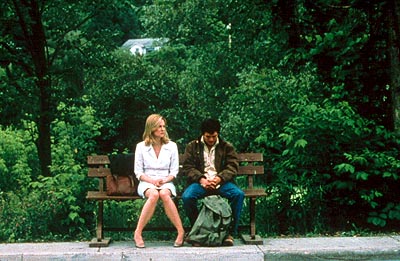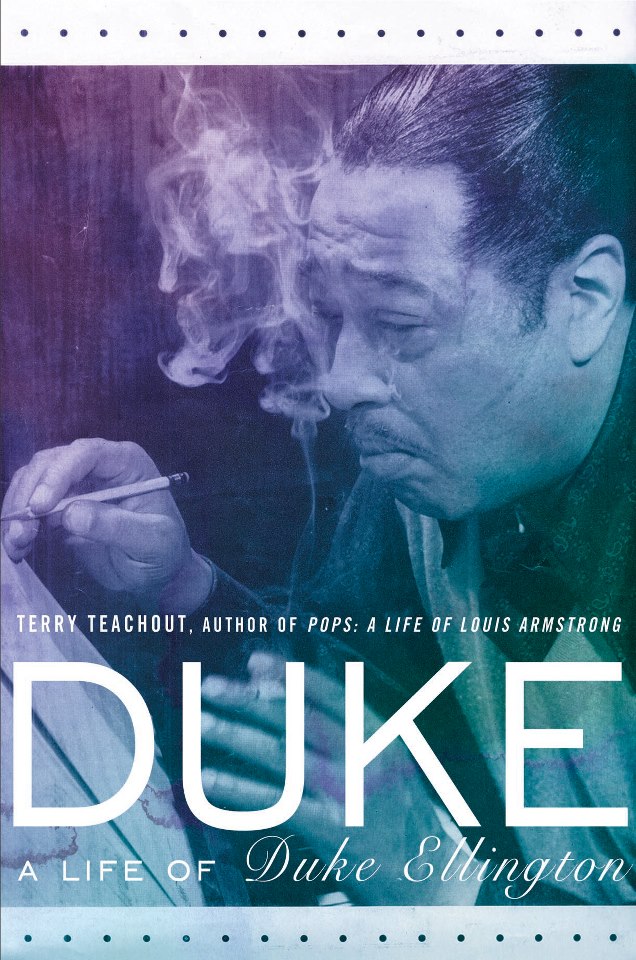 From 2007:
From 2007:
At various points along the way, I was sure I was going to be a lawyer, a high-school teacher, a jazz musician, and a psychotherapist, and I fully expected to pursue each of these professions within the borders of the Midwestern state where I was born. Instead I wake each morning, climb down from the cozy loft in which I sleep, turn on a small electronic device that in my youth was unimaginable save to science-fiction writers, and spend the day writing about the arts. I don’t live in a house, don’t own a car, don’t have a lawn to mow, don’t know any of my neighbors. I am, in short, a New Yorker…
Read the whole thing here.

 As I
As I  For the most part, you have to look to films, not novels, to get a clear sense of small-town life, and it’s surprising–or maybe not–how few of the ostensibly serious ones hit the mark at all squarely. By far the most convincing cinematic portrayal of a small town that I know is Kenneth Lonergan’s
For the most part, you have to look to films, not novels, to get a clear sense of small-town life, and it’s surprising–or maybe not–how few of the ostensibly serious ones hit the mark at all squarely. By far the most convincing cinematic portrayal of a small town that I know is Kenneth Lonergan’s  “You don’t see a lot of things in Grady, but what you do see, you see a lot of,” says Lou, the character played by Julie Warner in Doc Hollywood. She doesn’t mean it as a compliment to her home town, about whose cultural limitations she has no illusions, having lived briefly in New York City. At the same time, though, Lou also knows that there’s more to life than skyscrapers and concert halls, and so she has consciously chosen to return to Grady and spend the rest of her own life among her own people, even if it deprives her of the man who may be her true love.
“You don’t see a lot of things in Grady, but what you do see, you see a lot of,” says Lou, the character played by Julie Warner in Doc Hollywood. She doesn’t mean it as a compliment to her home town, about whose cultural limitations she has no illusions, having lived briefly in New York City. At the same time, though, Lou also knows that there’s more to life than skyscrapers and concert halls, and so she has consciously chosen to return to Grady and spend the rest of her own life among her own people, even if it deprives her of the man who may be her true love. Whenever I find myself in small towns like Spring Green, I remember how it felt to grow up in Smalltown, U.S.A., where the “myth” of community is in fact a daily reality, one that strengthens and comforts all who participate in it. My mother could never have lived anywhere else, and my brother has never wanted to. I chose another path, one that I’ve never regretted taking–but you don’t have to doubt that you took the right path to know what you missed by taking it.
Whenever I find myself in small towns like Spring Green, I remember how it felt to grow up in Smalltown, U.S.A., where the “myth” of community is in fact a daily reality, one that strengthens and comforts all who participate in it. My mother could never have lived anywhere else, and my brother has never wanted to. I chose another path, one that I’ve never regretted taking–but you don’t have to doubt that you took the right path to know what you missed by taking it. I recently spent a few days in Los Angeles with Steven Lasker, the world’s foremost collector of Ellingtonia, who probably knows more than anyone about Duke Ellington. (He definitely knows more than I do.) Not only did Steven allow me to browse freely in his amazing collection, but he made two priceless suggestions. He told me that Duke would be a better title for my biography than Mood Indigo, and he presented me with a little-known Ellington photograph that he thought would make an ideal cover image for the book.
I recently spent a few days in Los Angeles with Steven Lasker, the world’s foremost collector of Ellingtonia, who probably knows more than anyone about Duke Ellington. (He definitely knows more than I do.) Not only did Steven allow me to browse freely in his amazing collection, but he made two priceless suggestions. He told me that Duke would be a better title for my biography than Mood Indigo, and he presented me with a little-known Ellington photograph that he thought would make an ideal cover image for the book. The title of the play refers to Rose Trelawny (Nisi Sturgis), the spunky young ingenue of London’s Bagnigge-Wells Theatre, who has decided to retire from the stage, marry a well-to-do young gentleman (Jordan Coughtry) and renounce forevermore the disreputable ways of “the profession” (as she and her fellow actors call it). No sooner does Rose meet her beau’s paralyzingly proper grandfather (Edmond Genest), though, than she finds herself longing for the uninhibited warmth of her old friends, and the comic melodrama that ensues, which was Pinero’s specialty, is as delectable now as it was in his own day….
The title of the play refers to Rose Trelawny (Nisi Sturgis), the spunky young ingenue of London’s Bagnigge-Wells Theatre, who has decided to retire from the stage, marry a well-to-do young gentleman (Jordan Coughtry) and renounce forevermore the disreputable ways of “the profession” (as she and her fellow actors call it). No sooner does Rose meet her beau’s paralyzingly proper grandfather (Edmond Genest), though, than she finds herself longing for the uninhibited warmth of her old friends, and the comic melodrama that ensues, which was Pinero’s specialty, is as delectable now as it was in his own day….